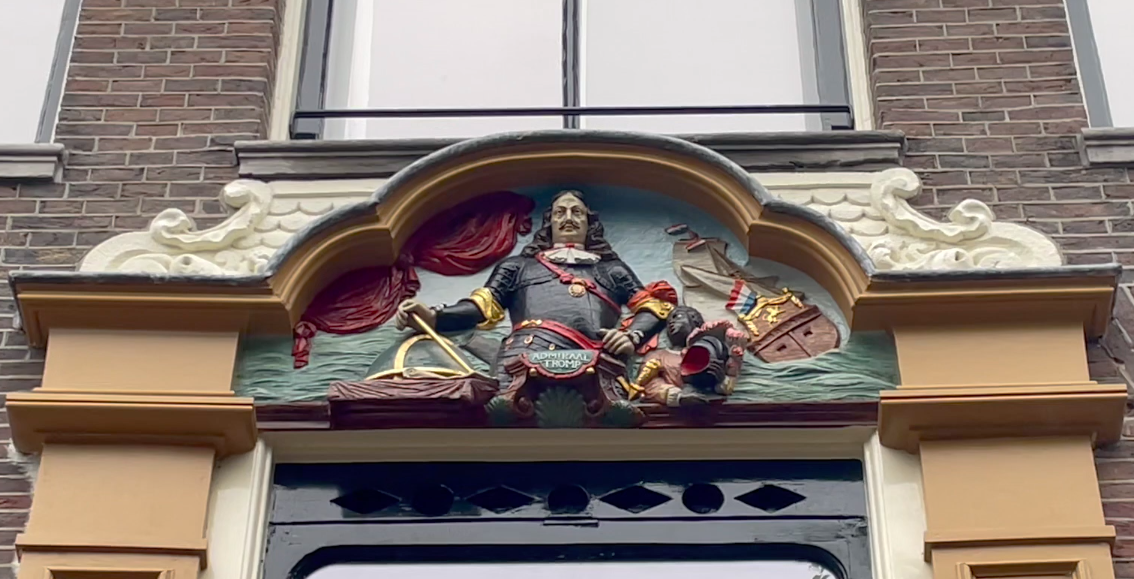
Traces of Colonialism in our Cities
The spaces we live in can hold many memories. Ancient sites have attracted humans throughout the ages, and people often reminisce about places they inhabited in the past. As a historian, i have always looked at the places i have lived through the lens of the past, who lived here before me? what happened on these streets? how have they changed? Luckily, the Netherlands is known for its picturesque architecture dating from centuries before. Romantic images of the canals draw in enormous groups of tourists each year, and walking over the cobblestones at night, lit by the dim streetlights, one is easily transported to the past. However, the picture of the past the beautiful cities of the Netherlands paint is not always such a beautiful one. The more you look, the more you see remnants from colonial times all over the city.
These gablestones and facades don’t immediately catch the eye, yet they still tell a story. Are these historical facades with reference to the colonial past a quiet glorification of the past, or can they serve as a way to commemorate the past and its victims? In this video, I take my bike through the city of Amsterdam to have a look at the traces of colonial history. I investigate the ways in which a city’s history can be commemorated in a respectful way by looking at other examples of permanent remembrance in history. I find out what municipalities, historians and other actors have to say about colonial images in architecture, and compare this to the widely debated issue of statues.
watch the video here !
Leave a comment
You must be logged in to post a comment.